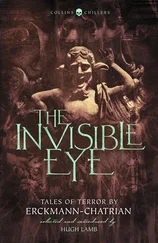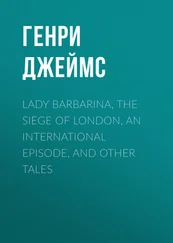Gamzu went on to relate how when he first came upon them they were dejected, with many sick at heart because of their long exile and long-deferred hope. But Gevariah ben Ge’uel, his father-in-law, is remembered for good, for he read to them from the Midrash and the Jerusalem Targum, which they have in its complete text, and which he translated into their language, and so gave them new heart, till they began to remember all the promises and assurances given us by the Holy One concerning the time of the Messiah.
Gamzu continued, “Gevariah ben Ge’uel, my father-in-law, was a mighty man. His face was the face of a lion, his strength was that of a bull, and he was light-footed as an eagle in flight. High praises of God were in his mouth and a two-edged sword in his hand. He led his people in prayer, and he forged their weapons of war. He also healed the sick, wrote charms, and taught betrothed maidens the marriage dances and songs. For this he would take no fee; all his works were done for the sake of heaven. And Gemulah his daughter was his mainstay. She was accomplished in all their songs, those that they had once sung when they dwelt by the springs and also those of the mountains.
“If you had seen my father-in-law Gevariah when he stood on the peak of a rock, a sky-blue turban on his head, his complexion and beard set off by his flowing hair, his dark eyes shining like two suns, his feet bare and the color of gold, his big toes striking the towering rock while he raised a song from the depths as he led his troops onward and Gemulah his daughter sang at full pitch and between twenty-two and twenty-seven maidens danced, all of them beautiful and high born, then you would have seen a likeness of the festive days of ancient Israel, when the daughters of Israel went out to dance in the vineyards.”
And how did Gamzu come to their land? “I had gone in search of manuscripts. I sailed the sea routes and walked for forty days in the wilderness. A sandstorm arose. But I failed to lay my head to the ground after the manner of those who cross the desert, who cover their heads when a sandstorm strikes, and when the storm has blown over stand up unhurt. The sand got into my eyes and blinded me; there was darkness all around me.
The leader of the caravan saw my distress, and after some days brought me to a settled region, and to the house of a certain man, saying, ‘He is of your people.’ That man was Gevariah ben Ge’uel. He prepared charms and medicines for me, and his daughter Gemulah tended me as I lay sick.
“Gemulah was then about twelve years old, and her gracious bearing and lovely voice were the most beautiful things in the world. Even when she spoke of commonplace things, saying, for instance, ‘Your bandage has slipped, Gabriel,’ or ‘Look down while I put ointment in your eye,’ my spirit rejoiced as if odes had been chanted to me. And when she sang, her voice stirred the heart like that of the bird Grofit, whose song is sweeter than that of any creature on earth. At first I had difficulty in understanding their speech, even when they spoke to me in the Holy Tongue, because their Hebrew has more full vowels and fewer elided syllables than ours and they pronounce words differently. Their speech rhythms are strange, too, so that I was unable to distinguish between their Hebrew and the language they spoke among themselves, a language that no outsider has heard. Gemulah and her father had yet another language. Often I would find them sitting in the twilight, a white kid lying in Gemulah’s lap and a bird hovering over the old man’s head, while they conversed, sometimes in a leisurely way and sometimes in haste, sometimes cheerfully and sometimes with an expression of fear. I would listen to them but not understand a word, until Gemulah revealed to me that this was an invented language which they had made up for their own pastime. Since the day Gemulah was torn from her native soil all that speech has disappeared from her lips, nor does she express herself in any song, save on the nights when the moon is full and she takes her walks, singing as she goes. But on the day when I sold the magic text, she spoke in that language and let her lovely voice be heard in song. And in the evening she said, ‘I want to eat kavanim .’ This is a kind of flat cake which they bake on live coals. Now I must go and see if my wife has come back.”
Gamzu took off his skullcap, placed his hat on his head, and stood up. But he had not got as far as the door when he turned back and began to pace about the room, his arms folded behind him, the fingers of his left hand fluttering nervously. After a little while he said, “I can’t understand why I came here, especially since I saw no light and didn’t know you were in the house; but certainly there is some reason for my coming, and even if I don’t know the reason, that doesn’t remove it. Who lives here?”
“A certain Dr. Greifenbach,” I said.
“And where is he?”
“He has gone abroad with his wife. Do you know them?”
“I do not know them,” said Gamzu. “Is Greifenbach a doctor of medicine?”
“He is a doctor who has left his profession. Why do you ask?”
“Apart from these people, who else is here?”
“You and I. Before they went on their travels, I promised the Greifenbachs that I would keep an eye on their house. They were worried about squatters, since there are so many of them now among the soldiers back from the war. Tonight I have kept my promise and come to stay here.”
Gamzu pricked up his ears. “And is no one else lodging in the house?”
“There is someone else,” I said, “who is not at home. Why do you ask?”
Gamzu blushed and said nothing. After a while he asked again, “What is the name of that lodger?”
I told him.
“Can he be the famous Dr. Ginat?” asked Gamzu.
“Do you know him?”
“I don’t know him, though I have heard of his books. But I haven’t read them. I don’t look at books that are less than four hundred years old.”
“Ginat’s books,” I replied, “go back four thousand years and more.”
Gamzu smiled. “I am looking at the vessel and not what it contains.”
Smiling in turn, I said, “Well, then, in another four hundred years you’ll be looking at Ginat’s books.”
“If in my third or fourth incarnation I am still interested in books,” said Gamzu, “it’s quite possible that I shall.”
“Two or three incarnations,” I replied, “are all a man goes through, according to the words of Scripture: ‘And it is said, unto three transgressions of Israel, yea, four, I shall not reverse it.’ No man of Israel passes through this world more than two or three times, unless he is obliged to fulfill some precept he has omitted from the six hundred and thirteen in the Torah; in which case he may even go through a thousand cycles of life, with reference to which it is said: ‘He commanded it unto the thousandth generation.’ But otherwise this is not so, yet you speak of a fourth incarnation.”
“It was a slip on my part,” said Gamzu. “You know my opinion, that no Jew is capable of saying anything for which the Bible gives no support, and especially that which is contrary to the plain meaning of the text. And do not answer me with those Bible critics who turn the words of the living God upside down. This they have learned from Gentile scholars, but in the depths of their heart they know that no text of Scripture has any other meaning than that which has been passed down to us by tradition. Yes, and the Hasidic leaders, they too twist the words of the Holy Writ; but the truly righteous who study the Torah for its own sake, with the intention of serving heaven, these only have the right to interpret scripture beyond its simple meaning. But as for the Bible critics who have not the merit of studying the Torah for its own sake, their teaching is perverted in accordance with the emptiness of their own spirit. So you say that Ginat lodges here. Do you know him?”
Читать дальше












